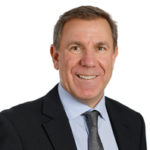
Our system of compulsory superannuation is the cornerstone of our national strategy to fund our ageing population beyond retirement age. One of the frustrations for many people is the performance of their retail or industry super fund. This has caused many people to consider opening their own Self-Managed Superannuation Fund (SMSF). The question is – do you really understand the fundamentals of SMSFs?
Self-Managed Superannuation Funds (SMSF) can be defined as funds which consist of six or fewer members and are regulated by the ATO. SMSF’s gives its members the ability to directly hold and control their retirement assets. All members within SMSF’s must be trustees, who are responsible for the management and investment of the superannuation assets for the fund’s members. As of June 2021, there were a total of 597,900 SMSF’s in Australia with over 1.1 million SMSF members. SMSF’s controlled approximately $822 billion in assets which is 25% of all superannuation assets.
There are several characteristics that all SMSF’s share (except single member funds):
- The fund has six members or less (prior to 1 July 2021 this was 4 members)
- All individual members are trustees, and all trustees are individual members
- In the case of a corporate trustee, all members must be directors of the trustee company, and each director must be a member of the fund
- Trustees cannot receive any remuneration for fulfilling his or her duties as a trustee of the fund
- No member is an employee of another member, except if they are related
- The money in the fund can only be used to provide for your retirement
- The trustees are responsible for making investments decisions and implementing an investment strategy
- The trustees are responsible for the administrative obligation of the fund including preparing financial statements and a tax return, organising an independent audit and compliance with the regulations and laws
When it comes to SMSF’s, they have numerous advantages compared to other types of superannuation funds:
- The trustees/members control the investment decisions. The fund has more flexibility and choice to determine the assets it wishes to invest in (e.g., direct shares, direct property, newly listed companies, unlisted trusts, term deposits etc.).
- Members may be able to transfer certain assets into the SMSF. These assets include listed shares and other securities and land and buildings used wholly in a business. This transfer may trigger a personal capital gains tax event for the member transferring the assets.
- SMSF’s can borrow under limited circumstances while taking full advantage of tax concessions within the fund.
- SMSF’s have the same tax rates as other superannuation funds. However, a SMSF can more easily put in place strategies that are tailored specifically for members. This includes the ability to adopt estate planning strategies.
- The costs of operating a SMSF do not necessarily increase when the value of the SMSF increases. Most of the operational costs of running a SMSF are fixed compared to other superannuation funds where costs are usually a percentage of the overall balance
While trustees control all the investment decisions, SMSF trustees are also responsible for ensuring that their fund complies with the legislation and rules. This is a responsibility that should not be taken lightly and can be time consuming. Serious breaches of the legislation and rules can result in a tax rate of 47%. Fortunately, there are professionals (including Accru) that will be able to assist you in meeting your responsibilities.
While SMSF’s have numerous benefits, they are not suitable for everyone. Please contact your local Accru advisor if you are considering a Self-Managed Superannuation Fund.
